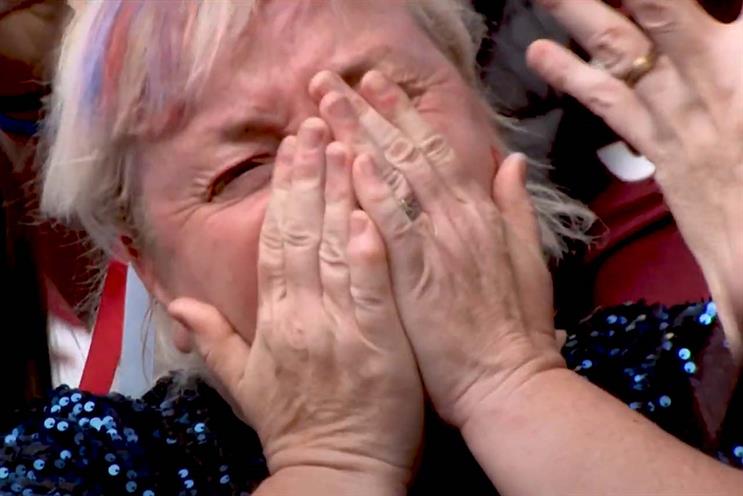A seminal cultural moment awaits us. Sport is back. At 6pm tomorrow (17 June), the Premier League will resume after a more than three-month absence, when Aston Villa host Sheffield United. Are you ready for it?
The pandemic is in many ways the great reflection of our times. While Covid-19 has taken so much from so many of us, it’s also given us something unexpected – the gift of time and space. And with that has come the chance for reflection and reappraisal. As a society and as individuals, we’re rightfully asking: how should we be doing things differently?
Our relationship to sport isn’t immune from this question. There’s no debating that sport has, and will continue to have, a profound and largely positive social and cultural impact. While, on one hand, the return of sport feels so meaningful, bizarrely on the other hand it feels utterly meaningless. When sport stopped, the world kept going.
With that perspective in mind, we can expect a barrage of sport-related advertising to kick off in the UK this week. All of it welcoming sport back, in whatever form it’s cast. And if marketing during the age of the pandemic has taught us anything, it's that the same brief will often yield shockingly similar results. Same input. Same output.
We’ve all seen it. In the first wave of work during the pandemic, we saw cliché after cliché. Narrative structure, music choice, stock selection – even style of voiceover – became comically consistent. This observation wasn’t just made by the ad community but also by the people we’re trying to reach.
There’s no question that the return of sport is a big opportunity for both sports brands and brands involved in sport. The "return brief" has been sitting with clients and in agencies all over the world – probably since sport was first postponed. I can vouch for that. And my fear is that brief looks similar everywhere.
That means get prepared to swim in a sea of sameness – celebrating screamers, comebacks and last-minute winners. The wait is over. Insert logo here. Risk-averse brands will abandon anything unique for the temptation of emotionality and appealing to the lowest common denominator.
While the pandemic thrust time and production constraints on the work that has run over the past few months (a reality that makes the similarity of the output easier to justify), we’ve had a much longer line of sight to prepare for the return of sport. I implore us all to focus less on how sport will have changed – and to focus more on how the world has. Here are a few things that sit at the top of my mind.
It’s not about sport – it’s about what sport means
At its best, sport is both a demonstration of human potential and a canvas for cultural commentary. Let’s not use sport merely as a welcome distraction. Instead, let’s use sport to remind us of our potential for human progress and a catalyst to bring attention to the truly meaningful topics of today.
The appreciation gap has closed
The dismantling of celebrity culture has yielded a renewed perspective on who our heroes should be. This ought to lead to a more fan-centric approach. Empty stadiums will serve as a reminder of the great Jock Stein quote (slightly adapted) that "sport without fans is nothing".
This Sky Sports ad (pictured, top) is a brilliant reminder of the part we all play.
Technology is (still) not the solution
We’ve all seen dozens of briefs that pre-suppose tech is the answer. Begging for innovation to connect fans to empty stadiums. This an obvious problem, but I wonder if it is brands or broadcasters that are best-placed to solve this?
So, what is the answer? Well, there’s no one-size-fits-all solution. And that’s kind of the point.
One UK betting brand with a penchant for mischief didn’t instinctively abandon its voice or the role it plays in sport. Instead, it has doubled down on it throughout the lockdown. Paddy Power’s just-released "All is forgiven" campaign, created by my agency Octagon, is rooted in the truth that time heals petty grievances. Like that moment when you finally see your long-lost friend, the one who always used to rub you up the wrong way. As far as football goes, the stuff we used to hate is now a welcome sign of the game’s return. Football is back. All is forgiven.
For Standard Chartered, meanwhile – the main club sponsor of Liverpool FC – we used the reflection time of the Covid-19 lockdown to help parents talk to their children about doing the right thing and the power of one’s own legacy.
The brand used football as a passion point to bring families together, releasing a true story narrated by manager Jürgen Klopp. The moral? Perfect for the times: "To him, what it meant to be king was to quietly and always do the right thing."
Ultimately, it probably all boils down to fundamentals. The argument for differentiation and distinctiveness is even more evident during times when so many brands will be competing for share of ownership of a singular cultural moment. That means when we start on a brief like this, we should all ask ourselves a very basic question: is this exact same conversation happening elsewhere? If it is, it’s up to all of us to do something else.
Sport will undoubtedly look different when it comes back. My hope is that the advertising around it does too.
Josh Green is creative director at Octagon


